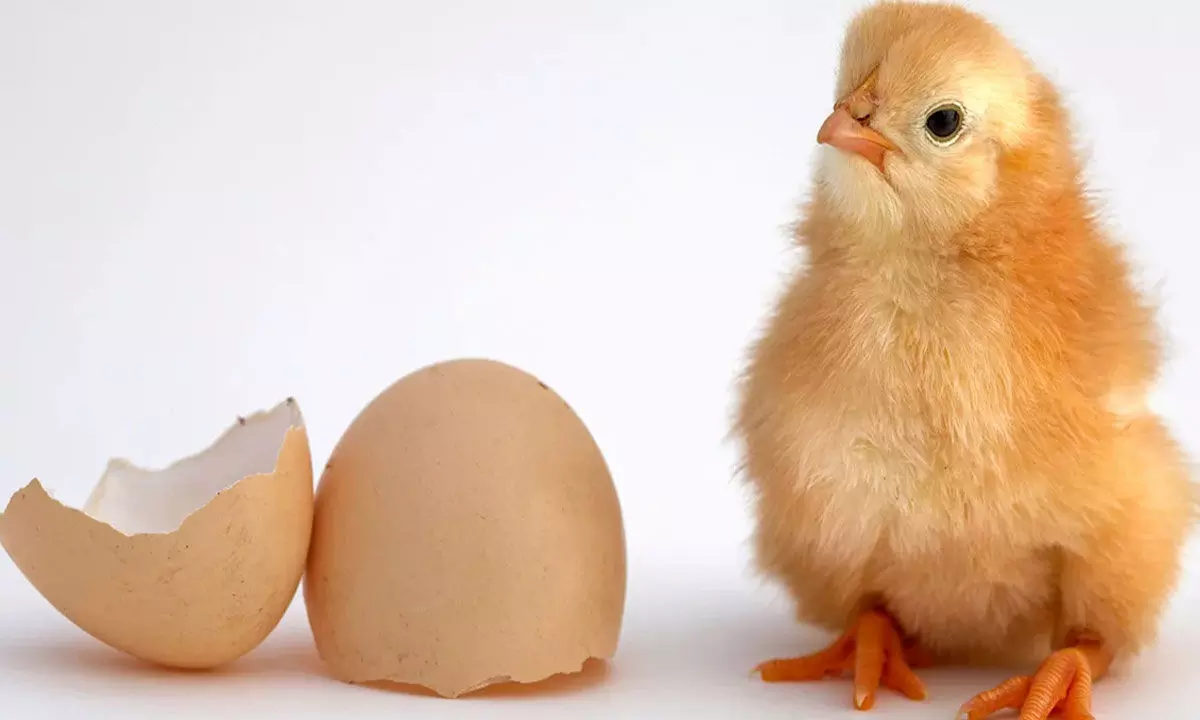What Came First, the Chicken or the Egg? AI answers the Age old Question
In the vast expanse of the internet, where countless thoughts and queries find their home, it is not often that an artificial intelligence dares to venture into the intricate territory of eternal philosophical conundrums. Yet, when a user posed the timeless chicken-or-egg paradox on Reddit, the response provided by the AI chatbot, known as ChatGPT, reverberated across the virtual realm, capturing the attention and fascination of thousands.
image for illustrative purpose

In the vast expanse of the internet, where countless thoughts and queries find their home, it is not often that an artificial intelligence dares to venture into the intricate territory of eternal philosophical conundrums. Yet, when a user posed the timeless chicken-or-egg paradox on Reddit, the response provided by the AI chatbot, known as ChatGPT, reverberated across the virtual realm, capturing the attention and fascination of thousands.
The question, seemingly wrapped in the garb of simplicity, seeks to probe the complex cycle of causality: What came first, the chicken or the egg? The enigmatic nature of this riddle lies in the fact that while a chicken hatches from an egg, the egg is laid by a chicken. This scenario creates a perplexing circular paradox that has left thinkers, philosophers, and curious individuals scratching their heads for centuries.
Yet, ChatGPT's concise and unassuming response resonated with the masses, captivating their imaginations and sparking conversations. In just a single word, the AI uttered, "Egg." The profound brevity of this response encapsulated the essence of the matter, stripping away the layers of complexity and capturing the crux of the issue. When pressed for an explanation, the AI offered a succinct yet powerful retort: "Evolution." With these two words, an artificial intelligence had seemingly unraveled an infinite loop of question-and-answer and distilled it to its very core.
The implications of ChatGPT's response were profound. The concept of evolution, which lies at the heart of biological transformations over immense stretches of time, provides a logical and scientifically grounded explanation for the chicken-or-egg paradox. Through the process of evolution, species gradually change and adapt to their environments, leading to the emergence of new life forms. In this context, it becomes evident that the gradual accumulation of changes in the genetic makeup of ancestral creatures eventually led to the existence of the chicken as we know it today. Hence, the egg, in which the first chicken would have hatched, precedes the chicken itself. Evolution serves as the key that unlocks the puzzle, demonstrating that the egg must have come before the chicken.
As the response gained traction on Reddit, its popularity soared, amassing over 7.5K upvotes within a mere 24 hours. The simplicity and elegance of the answer resonated deeply with individuals from diverse backgrounds. In a world rife with complexity and uncertainty, the ability of an AI to distill profound philosophical dilemmas into concise and thought-provoking statements struck a chord with people yearning for clarity and illumination.
However, ChatGPT's revelation did not exist in isolation. It found support among esteemed scholars and scientists who have dedicated their lives to unraveling the mysteries of existence. Roy Sorensen, a professor at New York University, delved into the philosophical dimensions of the chicken-or-egg paradox, explaining that while it may be indeterminate which particular egg was the first chicken egg, it is evident that whichever egg it may be, it predates the first chicken. The scientific community also tends to align with this perspective. Michael Benton, a prominent British paleontologist and professor at the University of Bristol, recently affirmed that the egg holds precedence, offering a resolute answer to the age-old quandary.
The widespread attention garnered by ChatGPT's laconic "egg" response underscored humanity's unyielding fascination with philosophical questions that probe the depths of existence. It reminded us of the boundless capacity of artificial intelligence to inform, simplify, and amuse us, transcending the traditional boundaries of its programming. As technology continues to advance, we may find ourselves increasingly inclined to seek answers to profound inquiries that have captivated the human mind for millennia.

